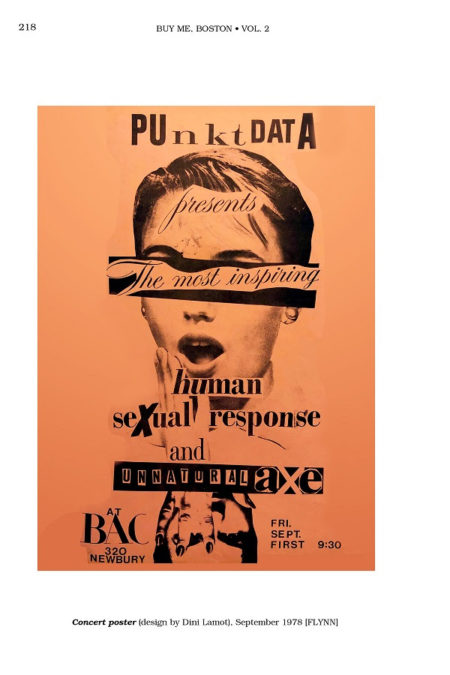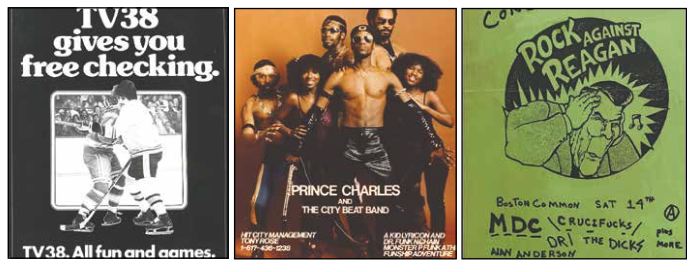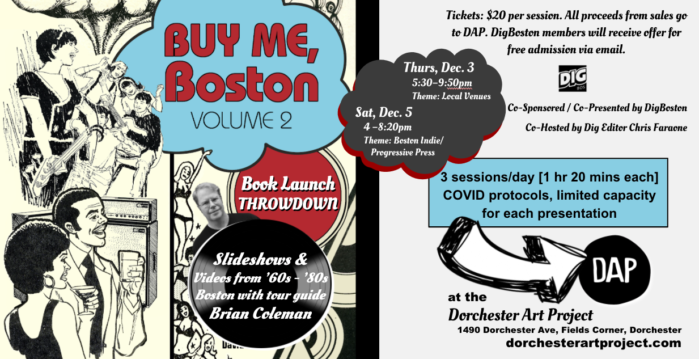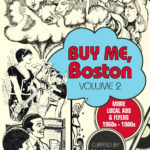About 5% of the rich history of performance venues in our lovely, funky, fractured city.
Performance venues have been a big part of my life since I was about age 15. In my early years I would, of course, go to movies, the occasional theater or sporting event. But by the time I was approaching adult consciousness, I began to understand that the setting of any event was almost as important as the performance itself.
My earliest experiences in this regard took place in the shady corners of Central New Jersey, where I went to high school, at the infamous City Gardens club in Trenton. It was an old, pretty much abandoned supermarket at the end of a dirt road, and it booked some of the most amazing music the world had to offer in the ’80s, from reggae to hip-hop to down-and-dirty punk rock.
Promoter, booker (and mailman) Randy “Now” Ellis was the reason City Gardens became a scene, and he changed my life. Lord knows what I would have done without those shows—the Descendents, Circle Jerks, Bad Brains, Toasters, Ramones, Ministry. The list numbers in the hundreds (seriously, I have a list). I was also close enough to spend quality time in the pit of NYC’s CBGB dozens of times in the mid- and late 80s, mostly at “Hardcore Matinees.” Warzone, Cro-Mags, Agnostic Front, Youth of Today, Life’s Blood, Murphy’s Law. Good times.
I realized after attending these shows that venues are all very different, but essential to the beating heart of any region’s arts scene. And the owners who allowed weirdos to put on shows in those venues are equally important, even if they are assholes.
To belabor the point further—the ecosystem around any venue deserves even more attention and study. The promoters who book shows, make no money, and deal with more bullshit than Job. The radio DJs on college stations who make no money but show up every week to connect the dots. The flyer-makers who draw crude imagery to entice believers and soon-to-be-converts to dark corners. The record stores who carry the tapes, CDs, and 7” vinyls of up-and-coming bands.
My work in the Buy Me, Boston book series continues my celebration not only of venues, but scenes as well. Scenes can spring up in the weirdest of places—one good example is the art gallery/punk connection. Existing in cities from LA to Berlin, Boston has several great examples in the late ’70s and early ’80s: Punkt/Data, Gallery East and the Media Workshop are some of my favorites to explore.
 Art students and punkers are both outcasts from society, whether real or imagined, and they always welcome discontents into the fold. This gave us some pretty interesting cross-pollinations—Magnus Johnstone paintings hanging in Gallery East while SSD tried to melt the paint off the walls; Human Sexual Response or Mission of Burma performing at Mass College of Art, sponsored by Punkt/Data, with no one batting an eye at any off-kilter outfits or sounds coming from the stage area.
Art students and punkers are both outcasts from society, whether real or imagined, and they always welcome discontents into the fold. This gave us some pretty interesting cross-pollinations—Magnus Johnstone paintings hanging in Gallery East while SSD tried to melt the paint off the walls; Human Sexual Response or Mission of Burma performing at Mass College of Art, sponsored by Punkt/Data, with no one batting an eye at any off-kilter outfits or sounds coming from the stage area.
Away from the fringe gallery scene, two of Boston’s most legendary venues—the Rat (aka Rathskeller) and the Club (outside of Central Square)—weren’t supposed to turn into Boston’s version of CBGB, but that’s the way it worked out. Why? Because the owners had no better ideas than to let a bunch of glue-sniffing weirdos play original music in 1975. They became clubhouses for castaways, and legends like Willie “Loco” Alexander, DMZ, Marc Thor, Mickey Clean & the Mezz and a lot more were carved out, night by night, beer by beer.
In the late ’80s, another unlikely venue became a petri dish for all kinds of music, from klezmer and belly dance jams to avant-garde jazz and grimy rock: the Middle East Café. This was due in large part to the late Billy Ruane and his compadres (Joe Harvard, Skeg Kendall)—Billy provided the monetary and emotional support, and the bands were free to stretch out, get better, freak out, and make waves.
The biggest tragedy is that there was never enough culture mixing in Boston’s nightlife (or daily life, which is still true today) when it came to musical genres/scenes and parts of town. There wasn’t enough R&B and hip-hop in Downtown Boston and Cambridge, not enough rock in Roxbury and Dorchester.
Aside from centrally located venues like the Bradford Hotel, Boston Center for the Arts (Cyclorama), Berklee Performance Center, and the Channel club in Fort Point, promoters booking gospel, R&B, rap, and so-called world music generally stayed across the Charles. Halls like the Strand Theater, William Reed and Carver Auditoriums, all manner of churches and even smaller spots—Combined Philanthropies Hall in Mattapan, Skycap Plaza, Roscoe’s, the Denison House, and Biff’s Lounge.
And that, my friends, is about 5% of the rich history of performance venues in our lovely, funky, fractured city. I mention only the above venues not because they are more or less important than any other spots, but because I am not here to take up too much space. I could go on and on about the Western Front, Boston Tea Party, Sugar Shack, Estelle’s, Johnny D’s, the Surf Ballroom, Wally’s, Green Street Station… Don’t get me started (again).
The moral of the story is this: As long as performers have something to offer and as long as promoters/bookers and venue owners have the guts to book them, we will have live entertainment.
Well, except for this year, which almost destroyed all live music, entertainment, and entertainers. So can we just all agree that 2020 never happened and move on?
Brian Coleman is the author of the Buy Me, Boston series as well as the Check The Technique hip-hop oral history book series. For more information on his work, visit BrianColemanBooks.com and BuyMeBoston.com
Brian Coleman is the author of the Buy Me, Boston series as well as the Check The Technique hip-hop oral history book series. For more information on his work, visit BrianColemanBooks.com and BuyMeBoston.com



